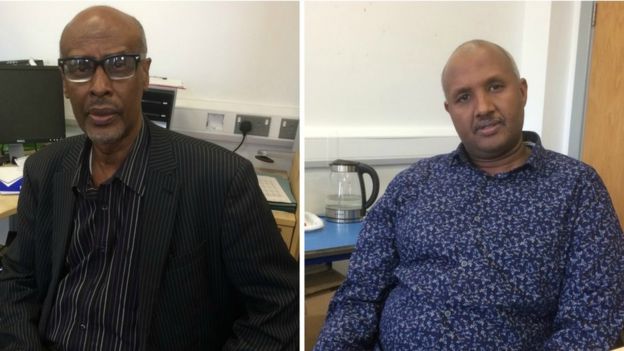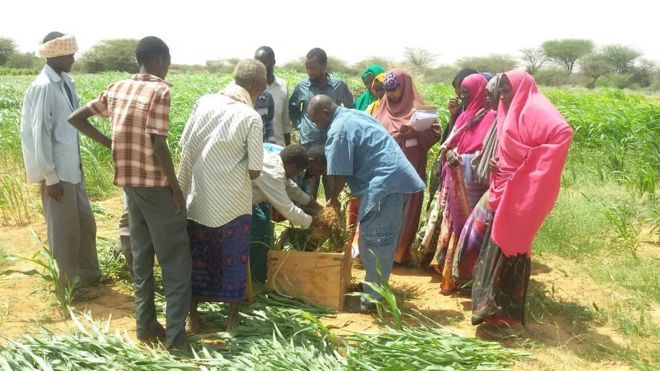Plans to help rebuild a famine-hit and war-ravaged African state have been drawn up by Welsh academics.
Links between Wales and Somaliland date back to 1870 – when people escaped persecution in their homeland and travelled to work in Cardiff docks.
It is now believed to be one of Wales’ fastest growing ethnic communities, with about 7,000 people based mainly around Butetown.
Cardiff University research outlines how to stimulate Somaliland’s economy.
It is the first report of its kind that explores the factors that effect this.
One of the main issues for the territory is that it is a self-declared republic and has never been internationally accepted – meaning it does not benefit from aid or foreign assistance.
However, Cardiff council became only the second UK council, after Sheffield, to recognise its independence from neighbouring Somalia and a group of men from the city have raised £100,000 to help people there.
What is Somaliland?
A breakaway, semi-desert territory of the Gulf of Aden, Somaliland declared independence after the overthrow of Somali military dictator Siad Barre in 1991.
Though not internationally recognised, Somaliland has a working political system, government institutions, a police force and its own currency.
Cardiff has become the second British council to recognise it.
The crippling aftermath of war was likened to a “tsunami effect” by research expert Eid Ahmed, who worked with Cardiff University researchers.
He pointed out how 75% of its Gross Domestic Product (GDP) is generated from sole traders in markets and on roadside stalls, with 80% of workers employed in this sector.
“I strongly believe if this informal trade and economy sector is supported, Somaliland’s national economy will significantly grow within a few years,” he said.
“Therefore, it is imperative that the needs of those engaged in this sector are addressed.”

Mr Ahmed, who worked with the university’s Prof Alison Brown and Dr Peter MacKie called this informal sector the “backbone of the national economy”.
In the capital Hargeisa, for example, they interviewed 168 workers, with 77% employed in this type of work.
There were many things found to be holding the country back, including a clan-based politics still existing and poor infrastructure, with services such as rubbish collection, water and electricity provided by expensive private companies.
Rainy and summer seasons affect earnings, while traders were found to be more vulnerable than those in other countries to victimisation, police harassment, evictions and confiscations.
Another big issue was found to be a lack of national legislation regarding labour rights and employment.
The research gives five recommendations including giving workers recognition and providing them with an input into decisions that effect their business.
It also suggests setting up umbrella organisations to give traders a collective voice and help them engage with committees set up in different areas.
Findings will be presented at an event in Cardiff next week, where tributes will be made to Welsh-based politicians, academics and charities who have helped stricken people in Somaliland.
BBC






































